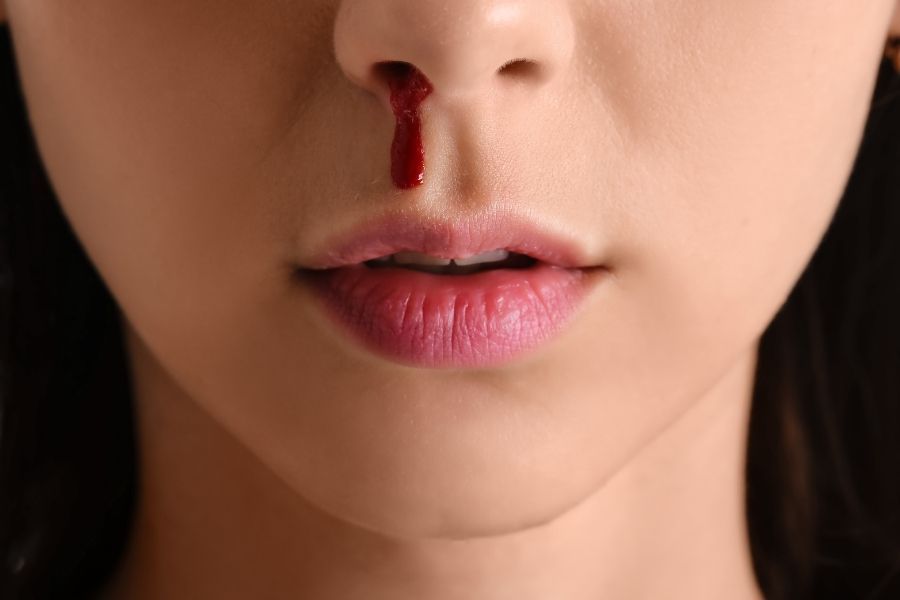
Nasal bleeding or nosebleed is often described as the loss of blood from the tissue lining the nose.
Common causes of nosebleed include:
- Breakdown of tissue lining in the nose. Some reasons for the breakdown include being exposed to dry, heated air and picking or rubbing your nose. Blowing your nose forcefully can also cause a nosebleed, especially when your nose is inflamed because of allergies or infections.
- Injury to the face or nose
- Use of some medicines such as
- Blood thinners e.g. aspirin, warfarin, clopidogrel, ticlopidine
- Painkillers known as non-steroidal anti-inflammatory drugs (NSAIDs) e.g. diclofenac, mefenamic acid, ibuprofen - High blood pressure
What you can do
Most nosebleeds are not serious and simple first aid measures will be enough. First aid for nosebleed includes these steps:
- Stay calm. Blow your nose gently to get rid of any clots that may have formed inside your nostrils. This may increase the bleeding for a short period of time.
- Sit down and lean forward slightly to prevent blood from flowing down the throat
- Breathe through your mouth
- Pinch the soft portion of your nose with your thumb and index finger. This area is located between the end of the nose and the hard, bony ridge that forms the bridge of the nose.
- Continue to lean forward and pinch your nose for 5 minutes (for children) and 10 minutes (for adults). If the bleeding continues, pinch for another 10 minutes.
- You can use a decongestant spray, such as oxymetazoline nose spray, to stop the bleeding. Spray the medicine into the bleeding nostril and pinch it as described above However, these sprays should not be used for a long period of time.
After the bleeding stops,
- Do not bend over, strain or lift anything heavy for a few days
- Do not blow, rub or pick your nose for a few days.
- Use a saline nasal spray to keep the nose moist.
You can prevent nosebleed by
- Keeping your nose moist. You can use saline nasal sprays or apply petroleum jelly to the nostril with a cotton swab
- Avoid picking or blowing your nose too hard
- Using a humidifier if you are in an air-conditioned room for long periods of time
When to see a doctor
- Bleeding does not stop after pinching your nose for more than 20 minutes
- If you always have nose bleeds
- If you’re losing a lot of blood, feel weak or look very pale
- If your nose bleed happens after a head injury
If you are taking blood thinners and the bleeding happens very often or does not stop
Updated in Nov 2018
This article does not take the place of talking to your doctor or pharmacist. People with special health needs such as babies, children below 12 year old, elderly and pregnant ladies should see a doctor instead of self-treatment. Always read the instructions and warnings on the package before taking any medicine.
.png)



















































